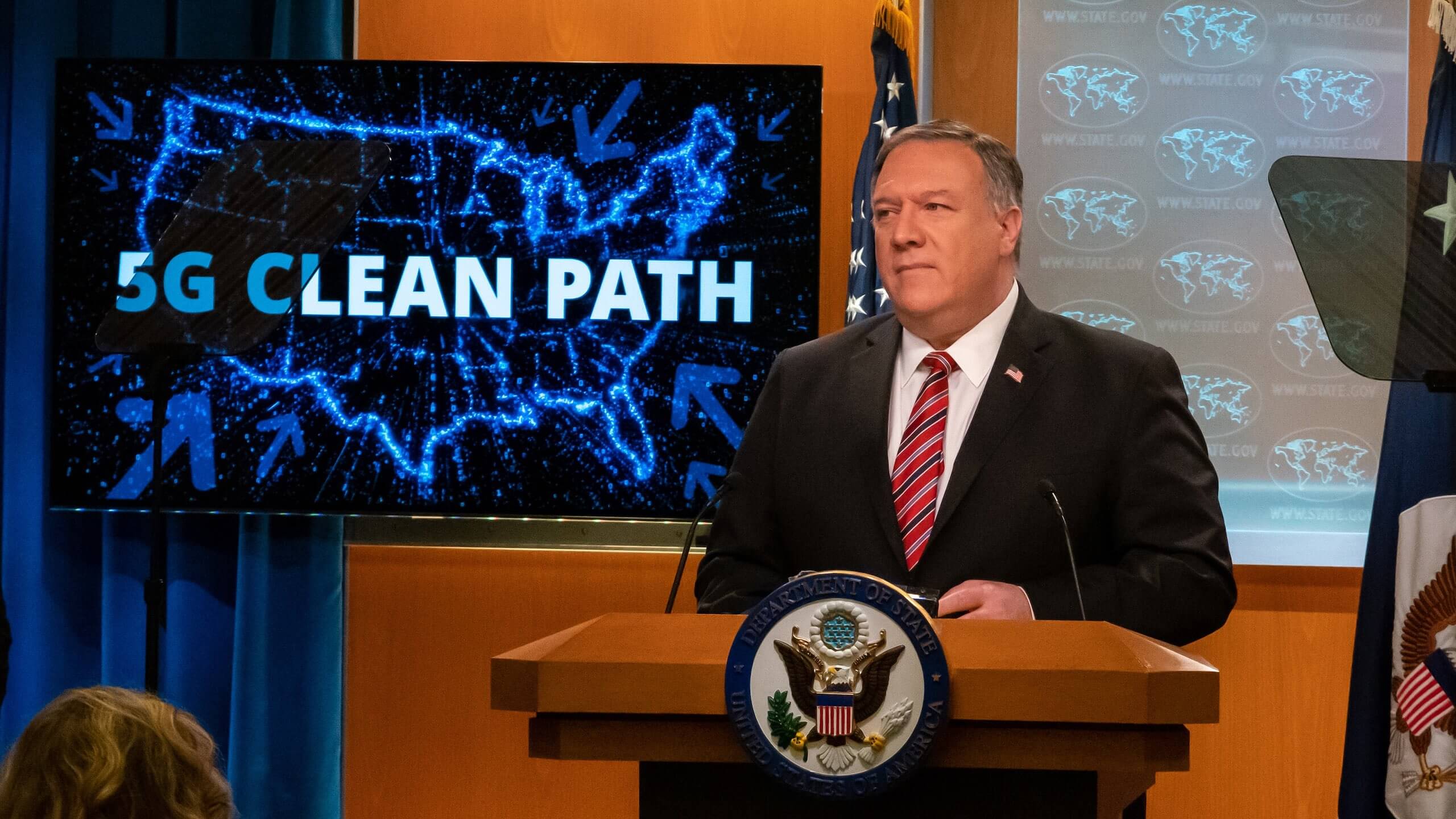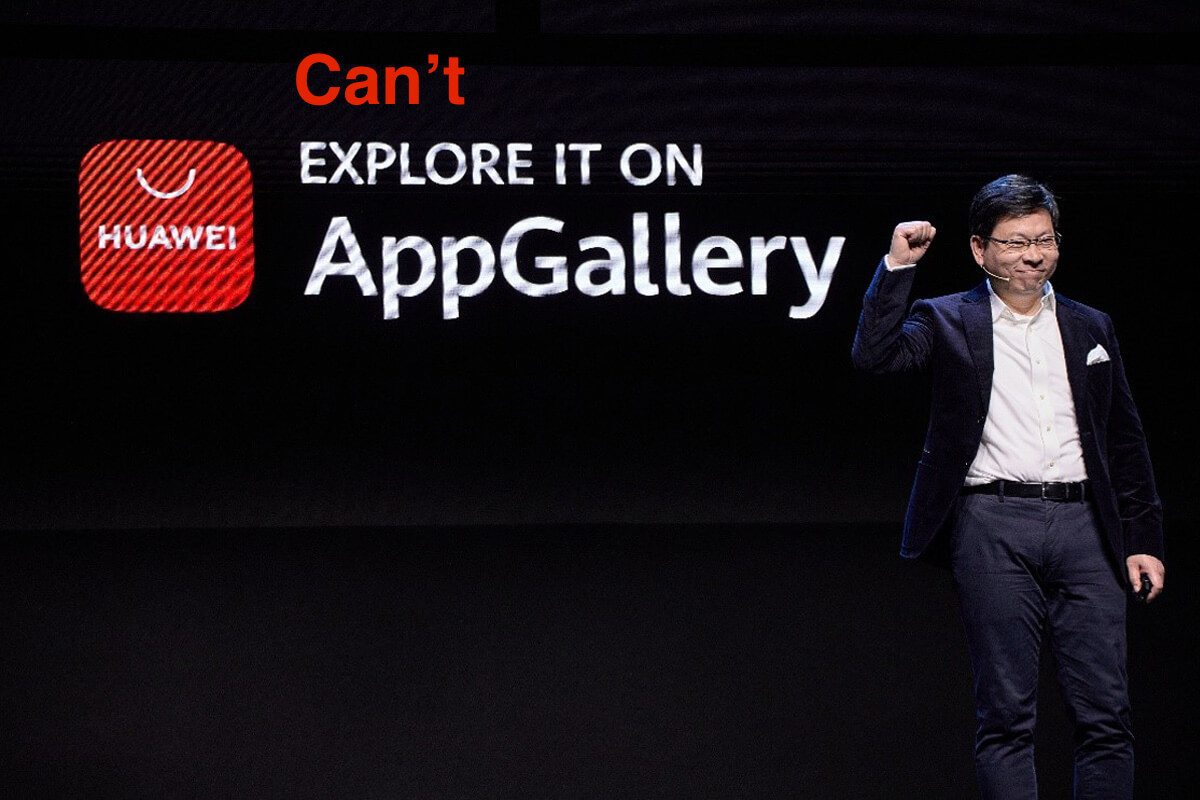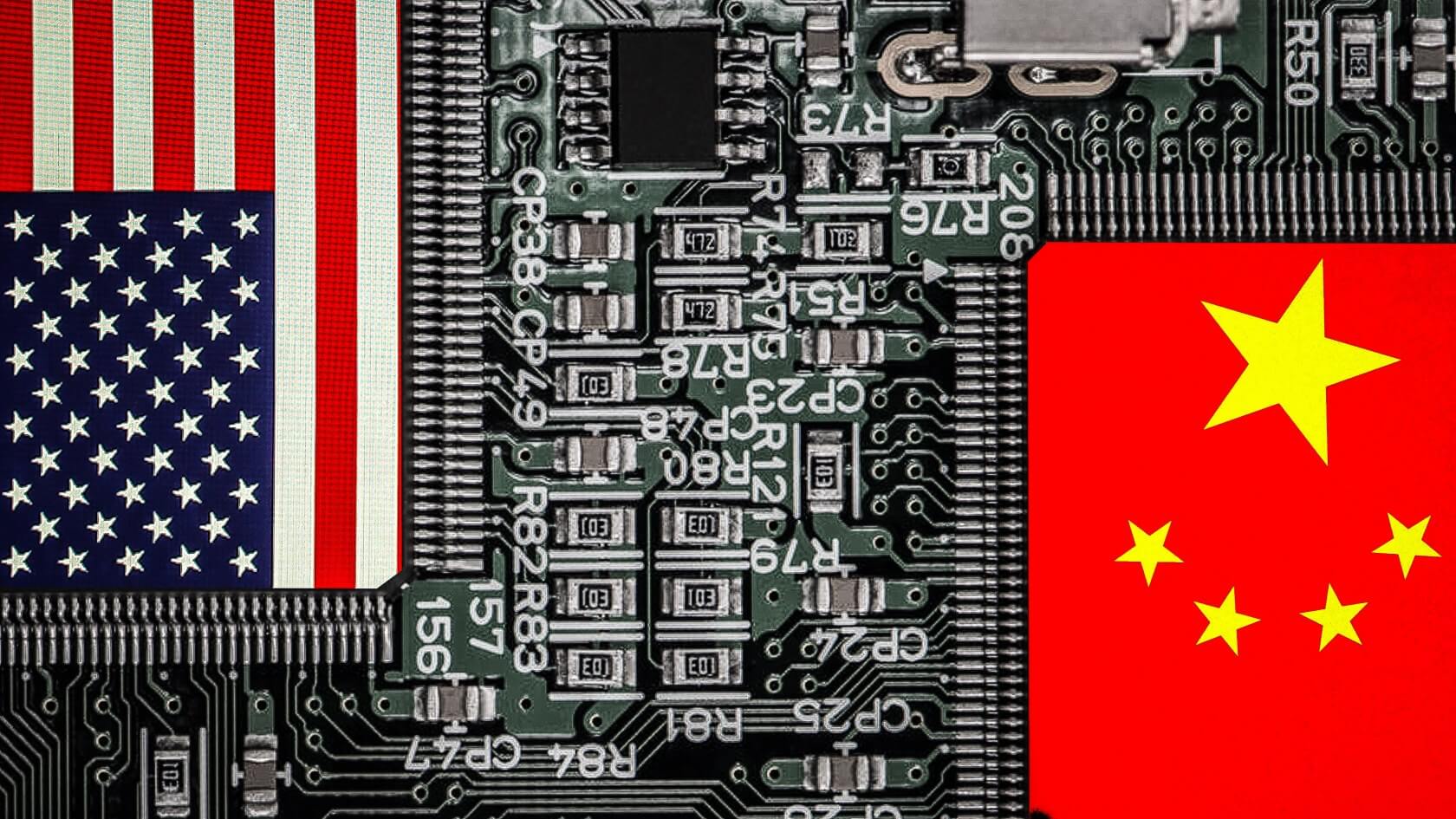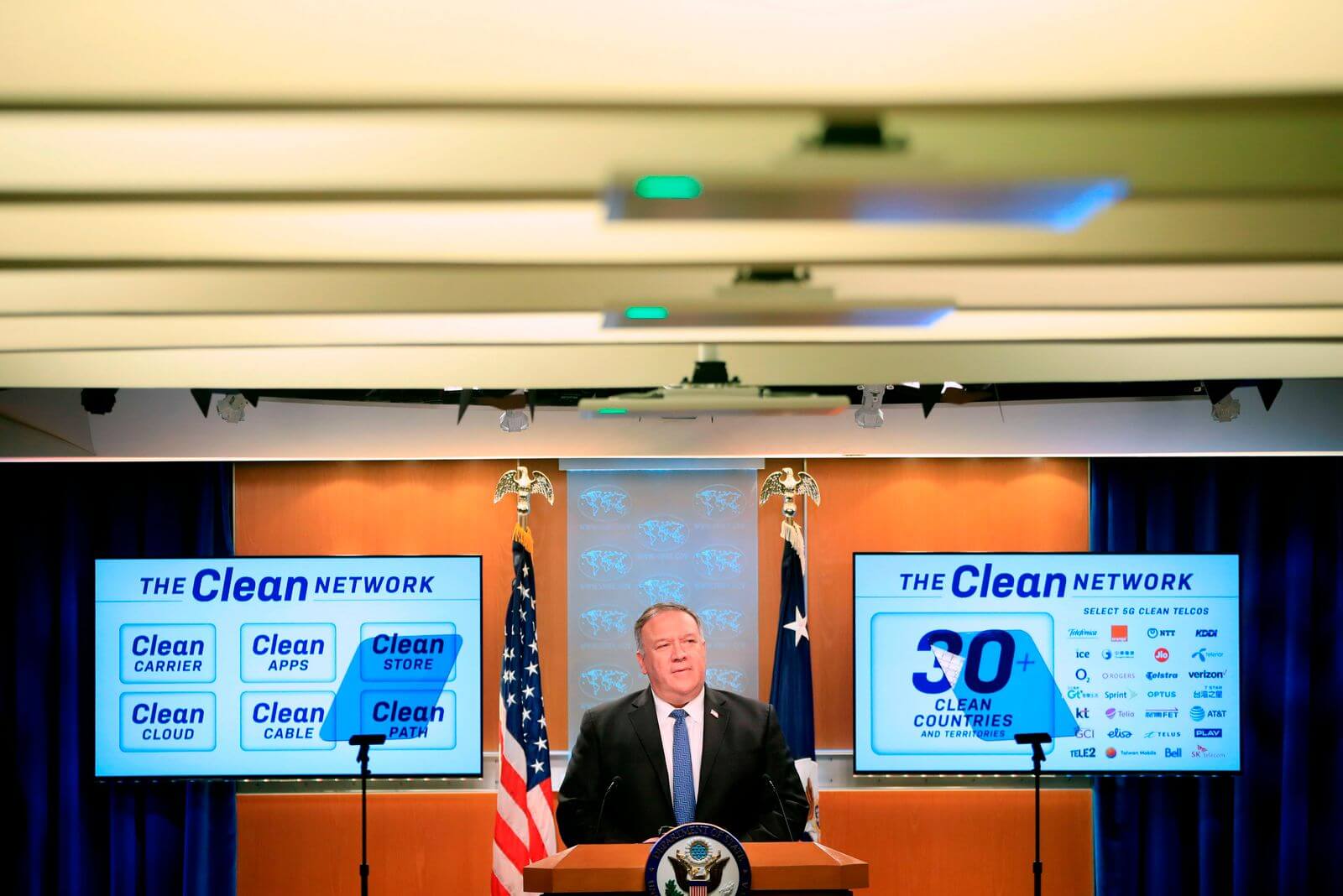Why it matters: Amid increasing trade tensions between China and the US, the Trump administration is looking to step up its efforts to drive Chinese tech companies out of everything from telecom infrastructure to consumer-facing apps and services. It's not clear how these plans will materialize, but if they do, they could lead to the splintering of the open and free Internet.
The Trump administration has unveiled a five-part plan to remove the presence of Chinese tech companies from the American Internet. Dubbed "Clean Network," the program aims to disrupt Chinese espionage efforts and prevent any censorship decisions being made at the whim of the Chinese government.

According to Secretary of State Mike Pompeo, the new program is an expansion of the White House's 5G Clean Path initiative that was announced earlier this year and targeted Chinese telecom equipment providers like Huawei, Hikvision, Hytera, and ZTE.
Clean Network would extend that same attitude towards "untrusted applications from US mobile app stores." One obvious example is TikTok, which is now facing an outright ban unless Microsoft can buy the entirety of its global operations. Pompeo told CNBC that "with parent companies based in China, apps like TikTok and WeChat and others are significant threats to personal data of American citizens, not to mention tools for Chinese Communist Party content censorship."
Of course, that ignores the fact that companies like Facebook and Twitter have suffered severe data breaches in the past, the most recent of which facilitated a Bitcoin scam. Ironically, Facebook CEO Mark Zuckerberg – who is known for his strong opposition to adopting Chinese values on big online platforms – reportedly told his employees this week that banning an app like TikTok would set a "really bad long-term precedent."

Additionally, US officials want to prevent Chinese phone manufacturers from pre-installing or offering trusted apps made by American companies in China. This is mostly a reaction to Huawei's alternative app store called AppGallery, which has apps from companies like Microsoft, Amazon, and Snap but is missing countless other apps that are popular in the US.
In another stroke of irony, American companies like Google and Facebook have had a hard time penetrating the Chinese market, and have mostly ceded it to local companies like Tencent, Baidu, and Sina Weibo. To make matters more confusing, Facebook recently discontinued a standalone TikTok clone called Lasso and started a global rollout of another called Reels, which will reside inside the Instagram app.

Another focus area of the Clean Network program would be to safeguard American cloud services and intellectual property. On the IP side, the Trump administration is looking to remove the opportunities along the supply chain where Chinese companies can steal American trade secrets. This has already manifested through cutting Huawei's access to TSMC's foundry and briefly suspending shipments of Intel server equipment to China's largest server maker.
On the cloud side, Chinese companies like Tencent, Baidu, and Alibaba would be prevented from collecting, storing, or processing the data of US users. It could also press American companies like Apple to offer detailed explanations of their relationships with the Chinese government, which hasn't worked very well in the recent past.

The fifth component of the Clean Network program is "Clean Cable," which would involve close scrutiny of undersea cables and the ability of Chinese authorities to use them for intelligence gathering. Even cables backed by American companies like Facebook and Google would be subject to the same treatment, as shown through the DOJ and FCC's recommendation to pause work on an 8,000-mile Internet cable between the US and Hong Kong.
There are reasons to believe that the "Great Firewall" proposed by the Trump administration is unlikely to become a reality, especially since it ignores the technical aspects of how the Internet works. Furthermore, around 70 countries across several continents already have infrastructure deals with China that are difficult to throw off the window overnight.
If, by any chance, the Clean Network initiative ever achieves its goals, we'd be left with a "splinternet," which at first would look like a US-controlled Internet co-existing with a China-controlled Internet. Other countries like Russia have also dreamed of a "sovereign Internet," which could lead to a gradual fracturing of the free Internet that was supposed to transcend national borders.
Ultimately, a politically-motivated move such as this could backfire against American companies and US consumers. A great majority of the gadgets we use are assembled in China, and it will be a while before some of them can be produce at the same scale in other countries like India. And, as pointed out by Telegram CEO Pavel Durov in a post discussing the pending TikTok ban, more countries could soon start using the pretext of "national security" to fracture US tech companies.
